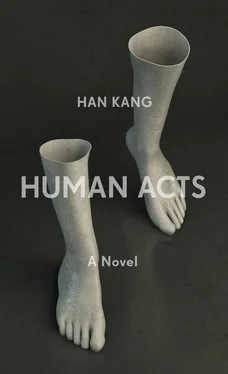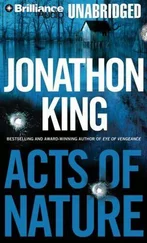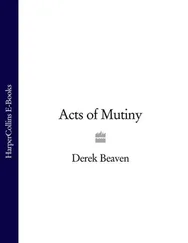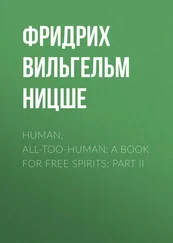Han Kang - Human Acts
Здесь есть возможность читать онлайн «Han Kang - Human Acts» весь текст электронной книги совершенно бесплатно (целиком полную версию без сокращений). В некоторых случаях можно слушать аудио, скачать через торрент в формате fb2 и присутствует краткое содержание. Год выпуска: 2016, Издательство: Portobello Books, Жанр: Современная проза, на английском языке. Описание произведения, (предисловие) а так же отзывы посетителей доступны на портале библиотеки ЛибКат.
- Название:Human Acts
- Автор:
- Издательство:Portobello Books
- Жанр:
- Год:2016
- ISBN:нет данных
- Рейтинг книги:4 / 5. Голосов: 1
-
Избранное:Добавить в избранное
- Отзывы:
-
Ваша оценка:
- 80
- 1
- 2
- 3
- 4
- 5
Human Acts: краткое содержание, описание и аннотация
Предлагаем к чтению аннотацию, описание, краткое содержание или предисловие (зависит от того, что написал сам автор книги «Human Acts»). Если вы не нашли необходимую информацию о книге — напишите в комментариях, мы постараемся отыскать её.
Human Acts
Human Acts — читать онлайн бесплатно полную книгу (весь текст) целиком
Ниже представлен текст книги, разбитый по страницам. Система сохранения места последней прочитанной страницы, позволяет с удобством читать онлайн бесплатно книгу «Human Acts», без необходимости каждый раз заново искать на чём Вы остановились. Поставьте закладку, и сможете в любой момент перейти на страницу, на которой закончили чтение.
Интервал:
Закладка:
I know the kinds of things he was busy with, at least: dealing with the wounded, organising the treatment of the corpses, obtaining coffins and flags, arranging the funeral ceremonies … all that sort of thing.
You know, I really wouldn’t have predicted he’d stay behind on the last night. There were only the hardliners left at that point, and they were mainly workers. Most of the students, on the other hand, had called for the Provincial Office to be evacuated before the army re-entered the city, insisting that no more lives be needlessly thrown away. They left their own guns in the lobby and went home to their beds; I would have had Jin-su down for one of them. Even when I saw him there, I had my doubts. I wouldn’t have been surprised if he’d snuck away before midnight.
Twelve of us, including Jin-su and myself, formed one group. We gathered in the small conference room and made the usual introductions, though I’m pretty sure none of us imagined that our acquaintance would last beyond that night. We each made a cursory will, jotted down our names and addresses and slipped these into our shirt pockets, so we’d be easy to identify. All these things we were making contingency plans for, that were almost upon us, the strange thing is that they still didn’t actually seem real. At least, not until we heard over the wireless that the army had re-entered the city. We all tensed up then.
Around midnight, the militia chief called Jin-su out into the corridor and told him to get the women out of the building. This guy had such a voice on him, even those of us inside the conference room could hear every word he said. At the time, I guessed that the reason the chief had picked Jinsu to see the women to safety was because he’d decided our chances of holding out were hardly going to be affected by the absence of this fragile-looking young man. I remember watching Jin-su shouldering his gun and marching out of the room, his lips pressed into a thin line. That’s right , I remember thinking, if I were you I’d find somewhere safe to hole up, and not worry about rushing back .
So I was surprised, then, when he did come back. In the twenty-odd minutes since I’d last seen him the tension had completely drained from his face, but now he could barely keep his eyes open. He went straight over to the window, curled up on the faux-leather sofa and promptly fell asleep. When I went over and shook him awake he didn’t even open his eyes, just mumbled about how he was sorry, but he was tired, just so tired.
Strangely enough, his exhaustion seemed to infect the rest of us, sapping our energy, and one by one everyone ended up sitting on the floor, slumped against the nearest wall. Even I wasn’t immune — I couldn’t keep myself from curling up next to Jin-su on the sofa. How to explain it? It was precisely the time when we should have been one hundred per cent alert, and instead we allowed ourselves to succumb to drowsiness, sleep blanketing our eyes and ears.
Somehow, the sound of the door being cautiously inched open made it through the fog of unconsciousness, and I opened my eyes to see some kid slipping into the room — a middle-schooler, I could tell by his cropped hair. He crept over to the sofa and sat down with his back against it.
‘Who are you?’ My voice was hoarse with sleep. ‘Who are you, and where have you come from?’ He’d shut his eyes tight as soon as he sat down, and he kept them shut when he answered me.
‘I’m so tired. I’m just going to sleep for a minute or two, here with Jin-su.’
Jin-su had been sleeping like the dead, but that voice startled him awake.
‘Dong-ho?’ he demanded in a muffled whisper, seizing hold of the boy’s arm. ‘Didn’t I tell you to go home? Didn’t you promise you would?’ His voice was getting louder. ‘What the hell were you planning on doing here? You know how to fire a gun, do you?’
‘Don’t be angry, Jin-su,’ the boy ventured. There was a rustling sound, as those woken by the argument got stiffly to their feet.
‘You’ll surrender at the first opportunity,’ Jin-su insisted, still not letting go of the boy’s arm. ‘Surrender, have you got that? Go out with your hands up. There’s no way they’ll harm a kid with his hands up.’
In 1980 I was twenty-two, and I’d just gone back to university after completing my military service. I was planning on getting a job as a primary school teacher after I graduated, and maybe that was why they chose me to be our militia’s leader that night; because I was a little bit older, and had a steady head on my shoulders. For the most part, those who’d stayed behind in the Provincial Office were an unruly lot, and there wasn’t much in the way of discipline going round. More like a mob than an organised militia.
The majority were still in their teens. There was even one kid, who went to evening classes after his job, who just wouldn’t be convinced that, even if he loaded his gun and pulled the trigger, a bullet would actually come out. He went out to the yard and fired off a round into the night sky. Those of school age were the ones who baulked at being sent home. They were so stubborn, they needed a lengthy talking to before they were persuaded to leave.
The militia chief insisted on running through our ‘tactics’ with me, though the plan turned out to be so flimsy it barely warranted such a description. The army were predicted to arrive at the Provincial Office at around 2 a.m., so we started filing out into the corridor at half past one. One of the adults was stationed at each window, while the younger boys lay on their stomachs in the spaces in between, ready to take over if the person next to them got shot. I had no way of knowing what tasks the other teams had been assigned, or whether our overall strategy had any realistic chance of success. The chief kept emphasising that our aim was only to hold out until dawn, when hundreds of thousands of Gwangju’s citizens would stream out into the streets and mass around the fountain.
It sounds foolish now, but at the time we half-believed those words. We knew there was a chance we might die, yes, but privately we thought we’d be okay. We were anticipating defeat, but also, and at the same time, thinking that we might somehow manage to come through after all. This wasn’t just me; for most of us, especially the younger ones, our hopes outweighed our fears. We had no idea that, only the day before, a spokesman for our student militia had met with foreign journalists and announced that our defeat was certain. He’d told them that we all knew we were going to die, but that we weren’t afraid of death. Such noble conviction, transcending all fear; but it’s only the plain truth to say that this isn’t how it was for me.
As for Kim Jin-su’s thoughts on the matter, there’s no way for me to tell. When he chose to come back after seeing the women to safety, was he fully expecting this decision to result in his death? Or was he more like me, erring on the side of optimism — thinking that death was far from inevitable, that we would manage to hold the Provincial Office after all, then be able to live the rest of our lives free from shame?
It wasn’t as though we didn’t know how overwhelmingly the army outnumbered us. But the strange thing was, it didn’t matter. Ever since the uprising began, I’d felt something coursing through me, as overwhelming as any army.
Conscience.
Conscience, the most terrifying thing in the world.
The day I stood shoulder to shoulder with hundreds of thousands of my fellow civilians, staring down the barrels of the soldiers’ guns, the day the bodies of those first two slaughtered were placed in a handcart and pushed at the head of the column, I was startled to discover an absence inside myself: the absence of fear. I remember feeling that it was all right to die; I felt the blood of a hundred thousand hearts surging together into one enormous artery, fresh and clean … the sublime enormity of a single heart, pulsing blood through that vessel and into my own. I dared to feel a part of it.
Читать дальшеИнтервал:
Закладка:
Похожие книги на «Human Acts»
Представляем Вашему вниманию похожие книги на «Human Acts» списком для выбора. Мы отобрали схожую по названию и смыслу литературу в надежде предоставить читателям больше вариантов отыскать новые, интересные, ещё непрочитанные произведения.
Обсуждение, отзывы о книге «Human Acts» и просто собственные мнения читателей. Оставьте ваши комментарии, напишите, что Вы думаете о произведении, его смысле или главных героях. Укажите что конкретно понравилось, а что нет, и почему Вы так считаете.












